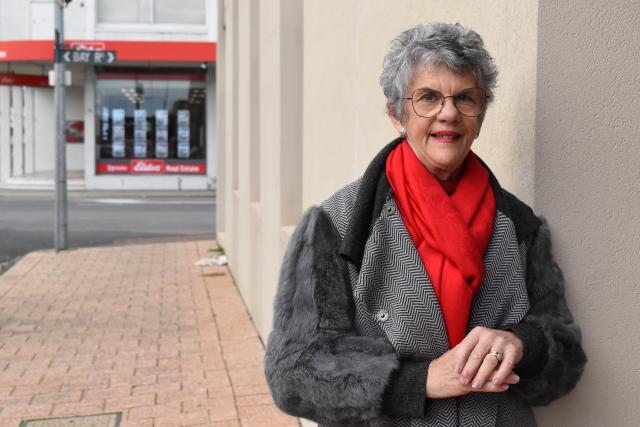
Tyler Redway
AS National Palliative Care Week comes to a close, In Home Hospice Care chair Maureen Klintberg reflected on how important the service is to the community.
Ms Klintberg said palliative care provided the essential support to patients diagnosed with “life-limiting” illnesses and their families.
“At what is probably their most difficult time of life as they face travelling to end of life journey, they can become increasingly socially isolated and our volunteers can offer that support at home to enable them that extra practical and emotional assistance,” Ms Klintberg said.
“Alongside the palliative nurse team, our volunteer organisation works collaboratively with that team which provides the medical assistance to the client.
“It is obvious that our community members wish to remain in their home for as long as possible and for many, their wish is to also die at home.”
Ms Klintberg said it was not always possible to fulfil a person’s wish to die at home, but there were other ways the service could provide care.
“All of these things which most of us take for granted can become quite difficult if we feel we need to be with our loved one who is probably not able to leave the home,” she said.
Ms Klintberg’s journey in the industry began as a registered nurse, where she said she felt a close association with the hospital and the staff working in its environment.
She also said when she was a part of the Health Advisory Council, she was “alarmed” when she found there were no designated palliative care rooms for those needing end-of-life care.
“The environment was not one which was able to provide that person or family-centred care or holistic care the patient or the family desired and can benefit from during those difficult times,” she said.
“I saw our palliative clinical team do an amazing job working within the community, but there were gaps, they were only able to work Monday to Friday from nine to five due to funding shortages.
“I also observed the palliative care volunteers had been disbanded back in 2012 so I thought there has to be a better way and the ability to be able to provide that extra support in the home.”
Ms Klintberg said she was inspired by the Warrnambool and Districts Community Hospice after meeting with them to discuss how a similar service could be brought to Mount Gambier.
She also said a future goal of the service was to increase volunteer numbers for smaller towns in the region such as Penola, Millicent and Naracoorte.
“We have had a number of inquiries in those areas and we know those regions need additional support and that we can support those communities, but we need the reassurance of ongoing funding,” she said.
“The Limestone Coast region is somewhat isolated from the city as we know, we do not have a resident palliative care specialist in Mount Gambier, only a visiting one and telehealth.
“This supports all our services, but for the size of our region and its remoteness from metropolitan areas, it’s vital that we are able to plan for the future particularly with an aging population and an increase in prevalent chronic illnesses.”
Ms Klintberg said the organisation hoped to start training more volunteers for the region as early as this year.
However, she said there needed to be a reserve of funding provided by grants and donations in order to continue providing the services available to the community.
“Particularly for myself, it would be heart-breaking to see our service fold when we know it is needed and it is making a difference and I think the fact metropolitan areas have had the continuity of palliative care volunteers within their hospital and now increasingly within outreach services, we deserve to have this service in our region,” she said.
Ms Klintberg said progress was being made towards building a hospice facility in Mount Gambier, which will allow patients with a chronic condition to spend their last weeks of life in comfort.
“We have had friends who have been transferred from this hospital to Millicent or Penola or even aged care facilities,” she said.
“This is just not acceptable as far as I’m concerned, not only for the size of the region but to care for our community.”
Member for the Legislative Council Ben Hood spoke in parliament on Mount Gambier’s In Home Hospice Care service and described it as a “vital new service” which had filled the gaps in the service’s previous operating hours.
“For an organisation with no ongoing funding source, In Home Hospice Care has achieved remarkable results in its short two years,” Mr Hood said.
“They have identified a growing need, both within and beyond their current geographic reach, and their goal is to ensure services are available to all who need them.”
Mr Hood also supported the calls from the South East community to keep ongoing funding for In Home Hospice Care.
“In Home Hospice Care has proven itself as a trusted and essential free service for those who wish to live and die well in the South East,” he said.
“Maureen, Sandi and the team of dedicated staff and volunteers are owed a debt of gratitude for their tireless advocacy and ongoing commitment to improving end-of-life care for the South East community.”







